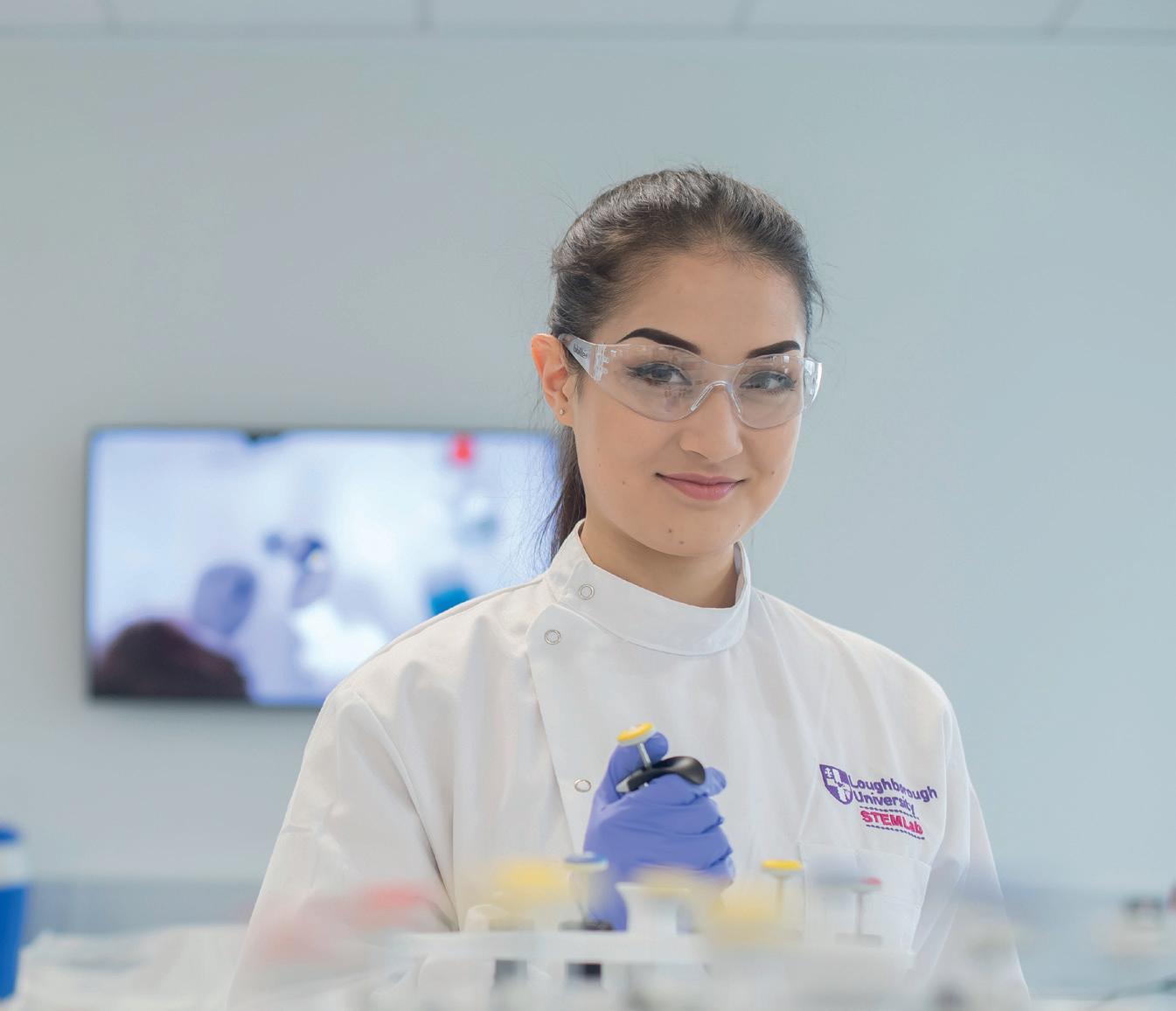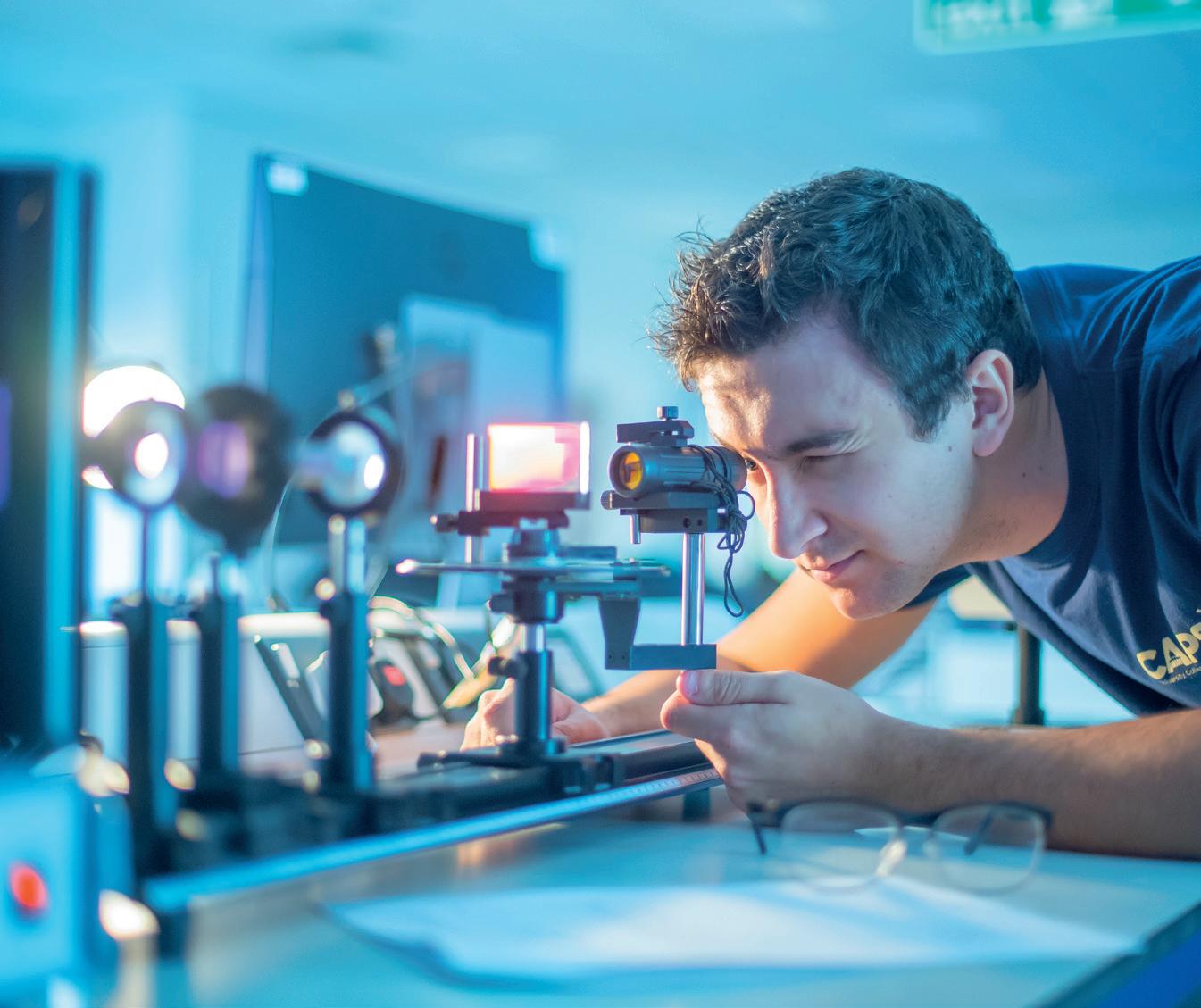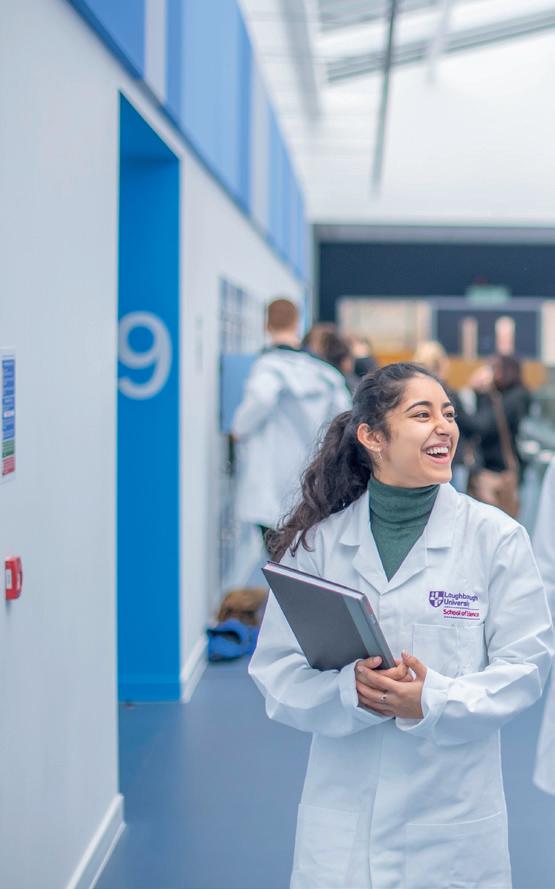
3 minute read
Bioengineering
Why choose Bioengineering at Loughborough? Bioengineering is a cutting-edge, multidisciplinary subject that bridges the gap between medicine and engineering for the enhancement of human health, sport and lifestyle. Our bioengineering course is taught by international experts and supported by world-class facilities. It brings together excellence in engineering training from Chemical, Materials, Mechanical, Manufacturing, and Electrical Engineering. This is combined with training from Loughborough’s School of Sport, Exercise and Health Sciences which has an excellent international reputation for its teaching. Placement year and study abroad Our Bioengineering course offers the option to complete a salaried year in industry or to undertake international study exchanges or work placements overseas. We encourage students to spend a year in industry to acquire skills in an industrial environment and significantly enhance their career prospects. The industrial year is supervised and on successful conclusion, graduates are awarded a Diploma in Industrial Studies (DIS) or a Diploma in Professional Studies (DPS) in addition to their degree. Close links with industrial partners means we are able to provide our students with considerable help in sourcing, securing, supporting and assessing their placement. Employability Our first graduate cohort will complete their degrees in 2020. Bioengineering is a growing sector and we expect our bioengineering graduates to be in high demand since the subjects covered relate to a wide area of engineering and manufacturing activity across many industrial sectors. Graduate roles span research and development, technical specialist, production, project and research management through to business and enterprise development. Bioengineering is also following the normal process for accreditation with the Institute of Mechanical Engineers (IMechE). Facilities STEMLab is a £17 million investment in new state-of-the-art laboratory facilities and part of a wider £25 million investment in our campus, which includes an adjacent student learning and teaching hub. It offers a suite of laboratories for practical work in Bioengineering, allowing students crucial opportunities to gain applied experience with biological samples in a safe and modern environment. We have invested £25 million into facilities in S-Building, home to our Bioengineering course. This includes a new floor of bioscience and engineering research laboratory space and equipment as well as a new 87-seater IT laboratory for taught sessions, project work and private study. 2ND IN UK FOR MATERIALS AND MINING ENGINEERING (INCLUDING BIOMATERIALS) THE GUARDIAN UNIVERSITY GUIDE 2020
TOP 10 IN UK FOR OVERALL SATISFACTION IN MATERIALS AND MINERALS TECHNOLOGY (INCLUDING BIOMATERIALS) NSS 2019
15% MORE ENGINEERING STUDENTS ON YEAR-LONG PLACEMENTS THAN ANY OTHER UK UNIVERSITY HESA 2016/17 FOR ENGINEERING AND TECHNOLOGY
£27,000 AVERAGE STARTING SALARY FOR ALL LOUGHBOROUGH ENGINEERING GRADUATES DLHE 2016/17
Bioengineering MEng (Hons) DIS/DPS/DIntS*: 5 years full-time with placement year UCAS code: H163 MEng (Hons): 4 years full-time UCAS code: H162 BEng (Hons) DIS/DPS/DIntS*: 4 years full-time with placement year UCAS code: H161 BEng (Hons): 3 years full-time UCAS code: H160 Typical offers A level: AAA (MEng) or AAB (BEng) including Maths with one from Chemistry, Biology and Physics (two of these subjects are preferred) IB: (MEng) 37 (6,6,6 HL) or (BEng) 35 (6,6,5 HL) including HL Maths and one of Biology, Chemistry or Physics at HL BTEC Level 3 National Extended Diploma: D*DD (MEng) or DDD (BEng) in a relevant subject plus A level Maths grade A
An exciting new interdisciplinary course in the application of engineering to biology and medicine. Year 1 Areas studied include bioengineering design projects, engineering science, mathematical methods, CAD and engineering drawing, electronics, materials, engineering analysis and modelling, anatomy and physiology. Year 2 Areas studied include advanced engineering science, mathematics, computation, statistics, digital systems, control engineering, materials characterisation, biochemistry, cell biology and advanced bioengineering design projects. Optional placement/study year Salaried industrial placement and/or overseas study. Year 3 Areas studied include a substantial bioengineering individual project, biomedical component design, healthcare engineering, research and innovation, bioelectricity and biophototonics, plus options in emerging technologies, medical devices and sports bioengineering. Year 4 (MEng only) Areas studied include an advanced team design project, business plans, advanced reliability plus options including neuromuscular function, biomechanics and regenerative medicine. Graduate destinations Areas of application for a bioengineering graduate are diverse and potential roles include medical engineer, rehabilitation engineer, prosthetist/orthotist, bioprocess engineer, and research and development engineer. *Diploma in Industrial/Professional/International Studies

Lisa BSc Human Biology

Courses
Biological Sciences 82 Human Biology 82 Foundation Studies 134
80 You may also be interested in… Chemistry 98 Medicinal and Pharmaceutical Chemistry 98 Natural Sciences 172










